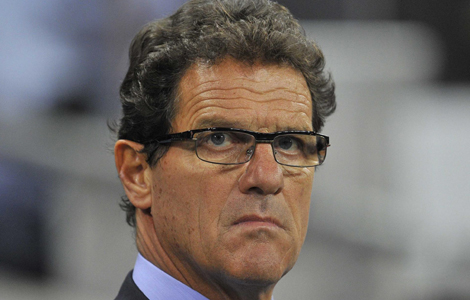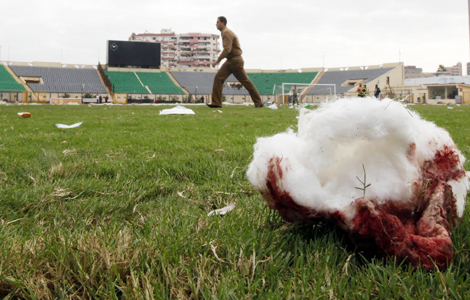Exclusive: Van Rompuy hails Sino-EU ties
Updated: 2012-02-13 20:20
By Fu Jin (chinadaily.com.cn)
|
|||||||||
On the eve of Sino-EU leaders summit scheduled on Tuesday, President of the European Council Herman Van Rompuy accepted written interview from Fu Jing, chief correspondent of China Daily in Brussels. The following is the full script of the interview.
Question: What are your hopes for the 14th EU-China summit?
Answer: When I met President Hu and Premier Wen in China last May, we decided to bring our relation to a higher level and to look for mutually advantageous deliverables in new areas of co-operation. We agreed to achieve a successful 14th summit to deepen and widen the strategic and comprehensive partnership between the EU and China.
Since then we have been working with great determination to achieve this common objective. I am very confident in a positive and forward looking result.
Q: What will be the main achievements of this meeting?
A: The agenda for our summit talks is wide and comprehensive: bilateral cooperation (based on more than 50 bilateral sectoral dialogues), global issues, and foreign and security aspects. We expect good discussions throughout the whole agenda with many concrete progress.
For example on the bilateral cooperation we identified two main areas where we can make our partnership stronger. Firstly, we will launch a brand new "High Level People to People Dialogue" aimed at improving the interaction between our citizens. Having EU and China almost 1.8 billion human beings we expect this dialogue to have a real added value. It will add another "pillar" to our architecture next to economy and security. We will also launch a partnership on "sustainable urbanisation". Urbanisation is a long term process in China presenting both challenges and opportunities. Last year China reached the symbolic point where its urban population exceeds the rural one for the first time. Our common objective will be to share and develop expertise in addressing this enormous challenge through an efficient use of resources and the protection of the environment, while still ensuring economic growth. The summit gives us an opportunity to have an honest discussion also on questions where our views may differ. We will insist with the Chinese leadership on better addressing economic issues, such as protectionism, and the protection of investments and intellectual property, and we will stress the importance of creating a level playing field for European players. We will also politely but clearly highlight the concerns our Member States and our societies harbour over some aspects of human rights in China.
Looking at our global agenda we will discuss how to achieve progress on key G20 issues. The contributions of Europe and China are essential to make economic growth sustainable, to reform the international monetary system, and to combat protectionism. Implementation of the decisions taken at the G20 summit in Cannes will be crucial (especially on the contribution to the IMF) ahead of the summit in Mexico. Stronger cooperation on climate change will also be key to ensure a complete and timely follow up of the positive outcome in Durban.
Thirdly, we will look at global and regional issues of peace and stability, as well as promoting political stability and economic growth in parts of the world where they are at risk. Beyond discussing the developments in the EU's Southern Neighbourhood, we will touch upon the regional stability and security questions of East Asia as well. We will also address the nuclear programme of Iran, and I will ask the Chinese leadership to use its considerable leverage to convince Iran to give up its controversial nuclear programme and return to the negotiating table.
Q: What do you see as the key features of EU-China Relations?
A: China makes an immense contribution to the world's sustainable growth. For example, it has lifted hundreds million of its people out of poverty. And its economy is progressing steadily. Europe - the world's largest market - produces 20% of the world's GDP. So, the EU and China are two pillars in today's world economy and key players in addressing global challenges. We both aim at preserving peace and stability. We are both attached to a multipolar world and the concept of multilateralism. Both of us have to adapt quickly to rapid changes in an increasingly interdependent world. We share a common set of challenges.
The importance of our relationship is also reflected in public perceptions. European public opinion increasingly focuses on China's successful economic development. At the same time it increasingly expects from China a greater role in contributing to the stability of today's world. Safeguarding human rights and the rule of law are part of this responsibility. China and the EU have both signed international instruments which enshrine the universal values of human rights, and we have a shared responsibility to uphold them. These are core values for the European Union, and China's public perception in European countries is closely linked with its respect of these values.
Q: Can China "save" the euro area from the debt crisis?
A: The debt crisis in the euro is being solved by the Euro area and its members. Far reaching measures have been taken to restore confidence and growth, through financial firewalls, strict fiscal policies and structural reforms. The euro is a part of the DNA of Europe, a common currency at the heart of the daily life of more than 300 million citizens. All European leaders are determined to do whatever needs to overcome the crisis.
Of course, we appreciate the confidence China has always demonstrated towards Europe and the euro. The euro is the world's second reserve currency and therefore, there is no doubt that the stability of the euro area is important for the world economy.
Hot Topics
Kim Jong-il, Mengniu, train crash probe, Vaclav Havel, New Year, coast guard death, Internet security, Mekong River, Strait of Hormuz, economic work conference
Editor's Picks

|

|
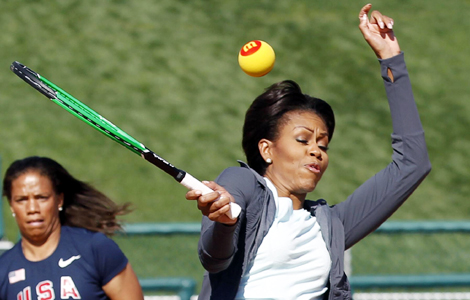
|

|
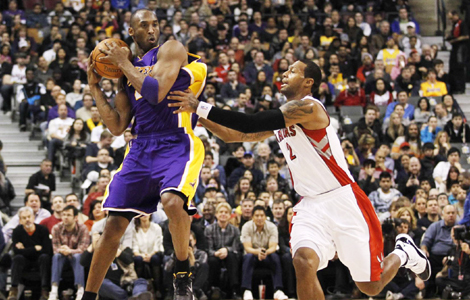
|
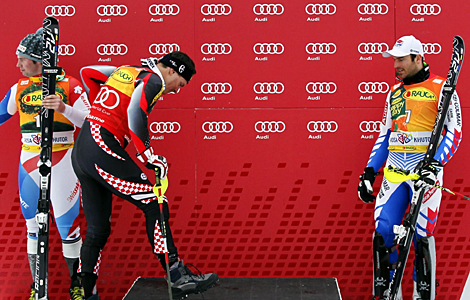
|


